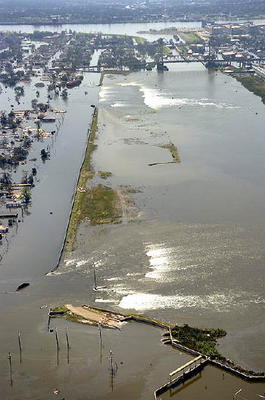Well, at least for another year. The Sac Bee reports that the Assembly Water, Parks and Wildlife Committee, chaired by Yolo County’s own Lois Wolk (D- Davis), just killed SB 27 until next year. The bill, sponsored by Sen. Joe Simitian (D-Palo Alto) would have established a committee to build a peripheral canal diverting water around the Sacramento Delta for export south, although it called it a “conveyance” in a modest feat of bureaucratic obscurantism.
Wolk, whose 8th Assembly District represents the northern half of the Delta, and who is running for the 5th State Senate district, which encompasses most of the eastern half of the Delta, recently spoke about Delta issues in a three part interview (1, 2, 3) in the Davis Vanguard:
We’ve asked the Delta to do many things and many of them are incompatible with each other. We want it to supply an unending or increasing supply of water to Southern California and to the Bay Area. We want it to be an extraordinary estuary to breed and facilitate fisheries. We want it to be the repository of agricultural and urban runoff. We want it to, I don’t, but it has become an area of increasing urbanization. We’ve asked it to do far too many things and it is dying, it is absolutely dying. Of course it is surrounded by levies that are basically 19th century piles of dirt, and they are failing. And it is seismically at risk. You can’t imagine an area that is of more significance and at risk.
What can we do? We can do a number of things. The people of the state of California voted for a bond in 2006 to repair the levies and to begin the process of improving the water quality in the Delta, and the fisheries, the habitat, and the agriculture. What we can do is to try to raise the profile of the delta. Most people know where the coast is and know why it’s important to protect it. Most people know about the Sierra Nevada, and they will protect it. They know about Yosemite and they will protect it. They know about their local parks and they want to protect those. But the Delta has very few people in it and very little political clout. So we need to be able to raise the profile of the Delta so that it takes its place as the key water and environmental issue for California.
Then we need to put in place structures that will protect it. It needs are steward. There is no steward-no body, no agency-whose sole purpose is to protect the delta. And if I’m elected to the Senate, that’s what I’ll spend many years trying to accomplish. It won’t be easy, but there has to be a body like the Coastal Commission that focuses exclusively on the Delta and has responsibility for all water decisions and all environmental decisions that affect it. That won’t be easy to do, but I am convinced that has to occur.
Of course, the Delta has to be preserved long enough to get such a commission to – ironically – preserve it, so it’s great news to see this bill killed in committee. Gov. Schwarzeneggar and San Joaquin vallley agribusiness were pushing to get this on the November ballot along with a $4 billion bond, as part of that whole extra special emergency session intended to ram through a bunch of dams funded with public bond money. Having this off the ballot may make the High Speed Rail Ballot measure, which also stands to be a boon for the Central Valley (even if the Altamont Pass route that was rejected would have been even better for the Delta commuter cities), more likely to pass, so this is good all around.
The Delta is dying, for a host of reasons, ranging from So Cal and the San Joaquin Valley stealing too much of its water, to a network of static 19th century levees that work at direct cross-purposes with the innately dynamic hydrological structure of a river delta, to cities and farms dumping all manner of pollutants into the water, to sprawl in the floodplain, (and that’s just the beginning), but the way to save the Delta isn’t draining it. The Delta is a stark example of the way that modern society ignores the hidden values of things just because they don’t overtly cost money to use. Until the state learns to see that incredibly complex ecosystem and hydrological system as something more than just a channel where a valuable commodity flows to the sea, and thus wasted, the Delta will continue to be in danger from hare-brained ideas like peripheral canals.
But for this year, it’s safe. And that’s worth remembering in November, when Wolk runs against San Joaquin Republican Greg Aghazarian to represent the Delta.
(h/t to Aquafornia for the link to the Bee story)
originally at surf putah






